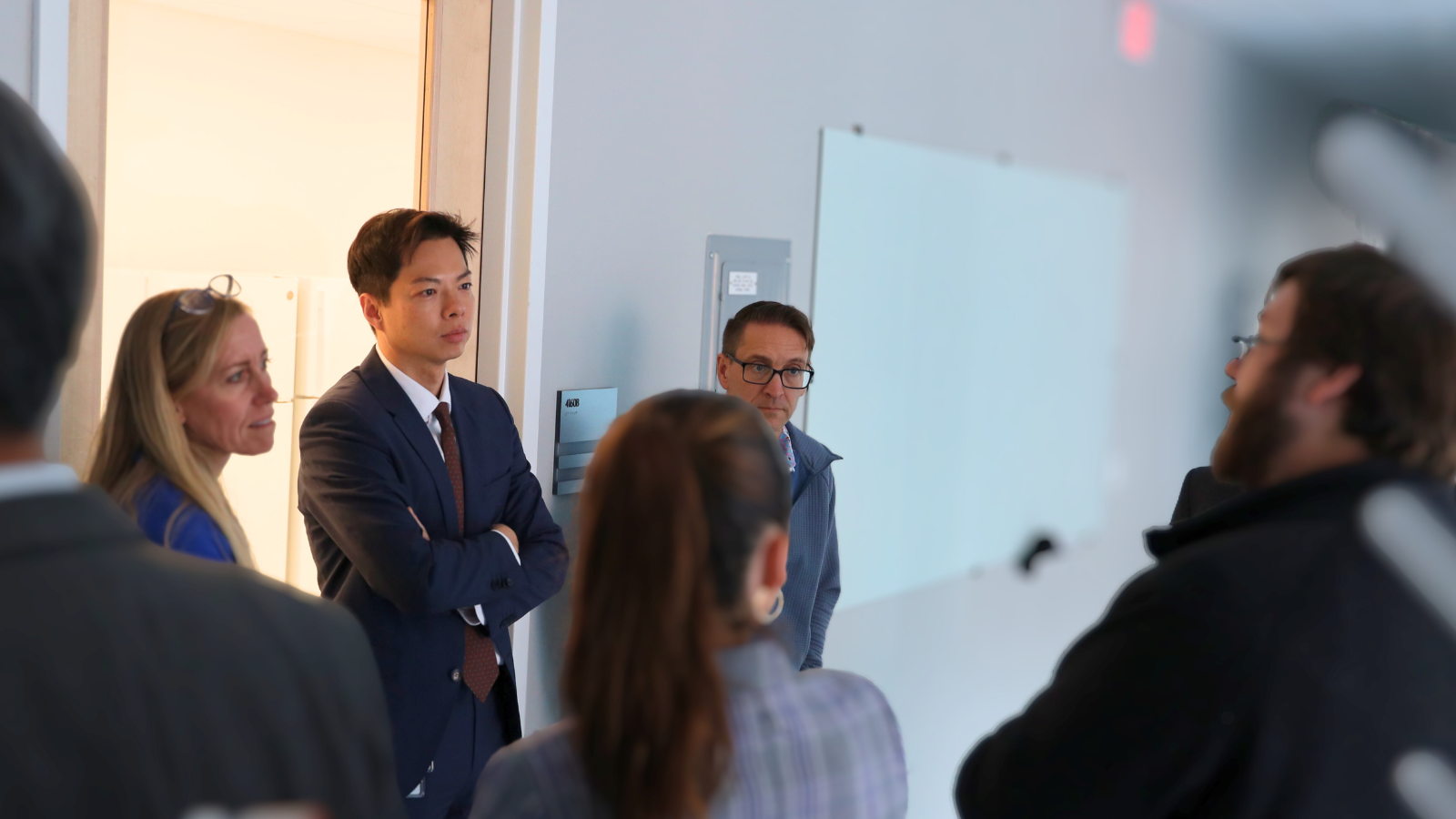News Story
UMD, GBSI Partner to Advance Antibody Standards
College Park, Md. – The University of Maryland (UMD) Fischell Department of Bioengineering and the Maryland Center for Excellence in Regulatory Science (M-CERSI) have partnered with the Global Biological Standards Institute (GBSI) to launch the Collaboration to Advance Antibody Standards.
This collaboration between the Fischell Department of Bioengineering and GBSI will allow for assessment of the current antibody standards landscape and identify and characterize the need for additional standards as they apply to antibodies in research and diagnostics, and as therapeutic agents.
To help enable this work, the Fischell Department of Bioengineering has named Dr. Simran Kaur the recipient of this year’s GBSI-funded Postdoctoral Research Fellowship, effective June 30, 2014. As the GBSI Fellow, Kaur will be an integral part of the M-CERSI community, interacting frequently with faculty and students, Fischell Department of Bioengineering Chair William Bentley, UMD Director of Regulatory Science Innovation Initiative Lex Schultheis, the Food and Drug Administration (FDA), the National Institute of Standards and Technology (NIST), and industrial consortia members including GBSI and its Antibodies Task Force.
Kaur received her Ph.D. in Microbiology from the Department of Microbial Pathogenesis, Helmholtz Centre for Infection Research in Braunschweig, Germany in 2009, and both her M.S. (2005) and B.S. (2002) in Biophysics from Panjab University in Chandigarh, India. Prior to her appointment as the GBSI Fellow, Kaur was a postdoctoral fellow at the University of Maryland, Baltimore, and a volunteer research associate at the Department of Chemical and Biomolecular Engineering at Johns Hopkins University. Her recent research focus areas include molecular biology, protein chemistry and cell biology.
As the GBSI Fellow, Kaur will design and implement a research program on how the application of standards can advance the quality, efficacy and reproducibility of antibodies in research and development, with a major publication as the intended result.
“Dr. Kaur will develop a new scientific tool for FDA regulation of therapeutic monoclonal antibodies known as ‘biosimilars,’” Schultheis said. “Biosimilar antibodies are intended to be therapeutically equivalent to the innovator antibody, just as generic drugs may be substituted for a small molecule drug whose patent has expired. Dr. Kaur's work will help inform FDA and the biologic pharmaceutical industry how to develop industry-wide standards to improve patient access to the highest quality medicine, especially in treatment of cancer and arthritis.”
“We are pleased to partner with University of Maryland through the creation and funding of the GBSI Fellowship, and participation on M-CERSI’s consortium for 2014,” saidDr. Leonard Freedman, President of GBSI. “Our collaboration contributes to reaching GBSI’s goal to ensure that best practices and standards in antibodies are adopted and widely implemented in the scientific community.” GBSI’s other initiatives include: developing educational curricula in quality research design for graduate students and post-docs, advancing best practices and standards in cancer cell authentication, establishing a registry of sample procurement standard operating procedures, and producing an analysis and publication on the economic impact of irreproducibility in biomedical research.
###
About the Global Biological Standards Institute
GBSI is expressly dedicated to enhancing the quality of life science research by advocating best practices and standards to accelerate the translation of research breakthroughs into life-saving therapies. As a non-profit, GBSI provides a global, independent forum for government, industry, academia and other stakeholders to increase awareness and use of best practices and standards throughout the research process.
Learn more and engage in the discussion about increasing the quality of life science research at www.gbsi.org.
About the A. James Clark School of Engineering
The University of Maryland’s A. James Clark School of Engineering is a premier program, ranked among the top 20 in the world. Located just a few miles from Washington, D.C., the Clark School is at the center of a constellation of high-tech companies and federal laboratories, offering students and faculty access to unique professional opportunities.
The Clark School’s broad spectrum of academic programs, including the world’s only accredited undergraduate fire protection engineering program, is complemented by a vibrant entrepreneurial ecosystem, early hands-on educational experiences, and participation in national and international competitions.
The Clark School is leading research advancements in aerospace, bioengineering, robotics, nanotechnology, disaster resilience, energy and sustainability, and cybersecurity. From the Universal Product Code to satellite radio, SMS text messaging to the implantable insulin pump, Clark School students, faculty, and alumni are engineering life-changing innovations for millions.
Learn more at www.eng.umd.edu.
Published June 30, 2014









